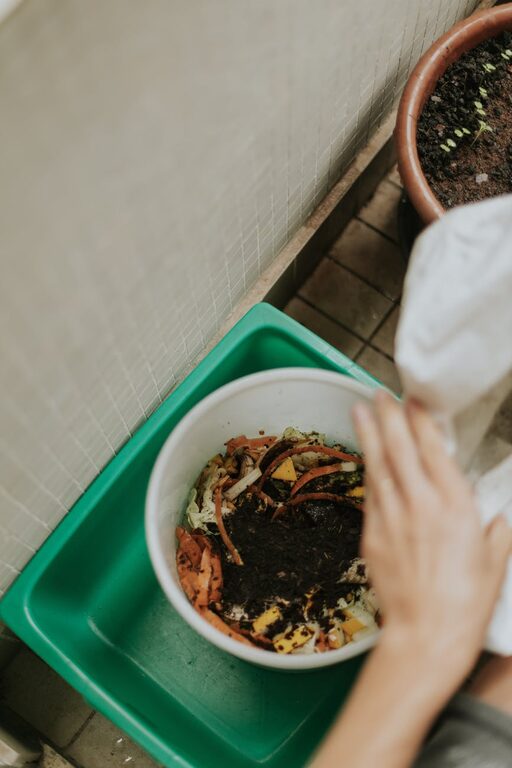Composting at home is a wonderful way to reduce waste, enrich your garden soil, and contribute positively to the environment. If you’re new to composting, it might seem a bit intimidating at first, but with a few simple tips, you can start turning your everyday organic waste into valuable compost. This guide will walk you through the basics and help you set up a successful compost system right in your backyard or even indoors.
What Is Composting?
At its core, composting is the natural process of breaking down organic materials—like food scraps, leaves, and grass clippings—into a dark, nutrient-rich material called humus. This humus can be used to improve soil health, helping plants grow stronger and healthier without relying on chemical fertilizers.
Benefits of Composting at Home
Composting offers several advantages:
– Reduces landfill waste: Diverts organic waste from landfills where it produces methane, a potent greenhouse gas.
– Improves soil quality: Adds nutrients and improves soil structure.
– Saves money: Reduces the need to buy commercial fertilizers and soil conditioners.
– Encourages sustainability: Teaches mindful consumption and recycling of resources.
Getting Started: Choose Your Composting Method
Depending on your living situation and available space, there are multiple composting methods to consider:
Outdoor Compost Pile or Bin
This traditional method requires outdoor space. You can create a simple compost pile or use a bin to contain the materials. Bins help keep pests out and maintain tidiness.
Tumbler Composters
These are enclosed compost bins that can be rotated to mix the compost, speeding up the decomposition process. Tumblers are ideal for people who want a neater, faster option.
Vermicomposting (Worm Composting)
This method uses worms to break down food scraps and works well indoors or outdoors. It’s especially good for apartments or places without yard space.
Bokashi Composting
A fermentation process that works in sealed containers, bokashi can handle a wider range of kitchen waste, including meat and dairy, which traditional composting usually excludes.
Essential Composting Tips for Beginners
1. Understand What Can Go Into Your Compost
To create healthy compost, balance is key. Your compost needs the right mix of “greens” and “browns”:
– Greens (Nitrogen-rich materials): Fruit and vegetable scraps, coffee grounds, fresh grass clippings, tea bags.
– Browns (Carbon-rich materials): Dry leaves, straw, cardboard, paper, wood chips.
Avoid adding meat, dairy, oily foods, pet waste, or diseased plants, as they can attract pests or create odors.
2. Maintain the Right Balance
Aim for a roughly 2:1 ratio of browns to greens. Too many greens can make the pile wet and smelly, while too many browns will slow decomposition.
3. Keep It Moist but Not Soaking
Your compost should feel like a wrung-out sponge: damp enough to support decomposition but not soggy. Water your pile if it dries out, and turn it if it becomes too wet.
4. Turn Your Compost Regularly
Mixing your compost every few weeks introduces oxygen, which helps microorganisms break down the materials faster and prevents odor buildup.
5. Chop or Shred Larger Pieces
Cutting up large vegetable scraps, leaves, or branches speeds up the composting process by increasing surface area for microbes.
6. Be Patient
Composting is a natural process and can take anywhere from a few weeks to several months depending on materials, temperature, and how often you turn the pile.
Common Challenges and How to Solve Them
– Bad odors: Usually caused by too much moisture or too many greens. Add browns and turn the pile.
– Pests: Keep meat, dairy, and oily foods out. Use a covered bin and avoid exposing food on the surface.
– Slow decomposition: Chop materials smaller, keep the pile moist, and turn more often.
– Compost too dry: Add water and greens.
Using Your Finished Compost
Your compost is ready when it looks dark, crumbly, and earthy, with no recognizable food scraps. Use it to:
– Enrich garden beds and flower pots
– Mulch around plants to retain moisture
– Topdress lawns or vegetable patches
Mix it into the soil before planting or sprinkle it around plants as a nutrient boost.
Final Thoughts
Starting composting at home is easier than many think. With minimal equipment and a little effort, you can turn everyday organic waste into black gold for your garden. Give it a try, and you’ll not only reduce waste but also nurture your plants naturally and sustainably.
Happy composting!

